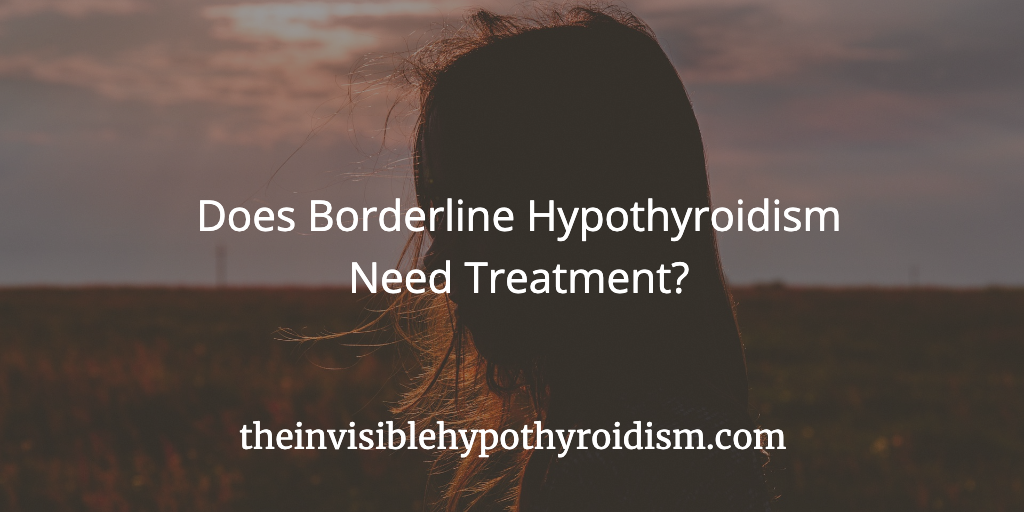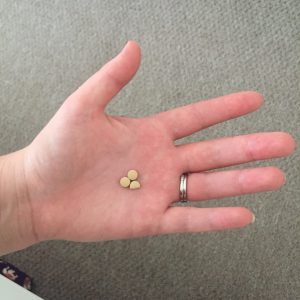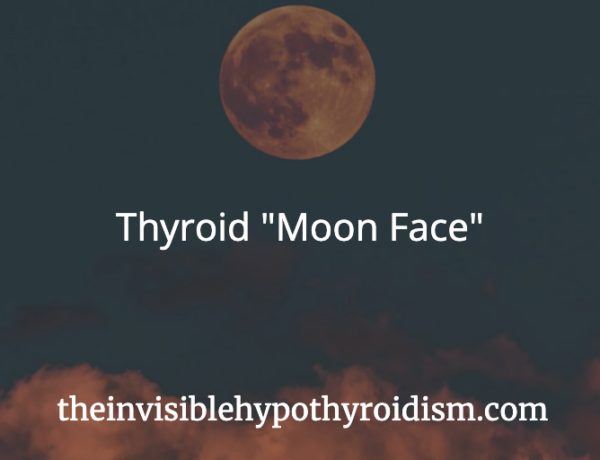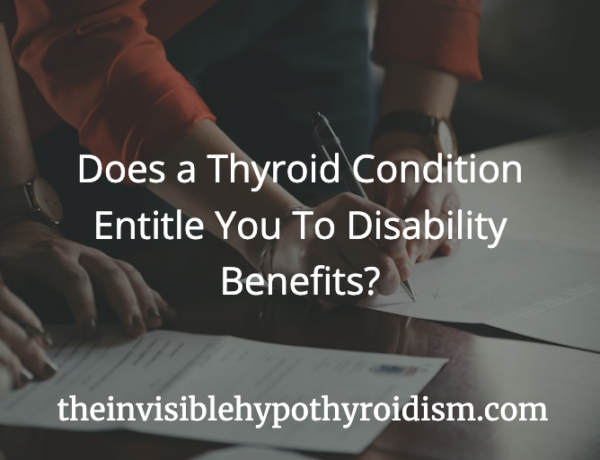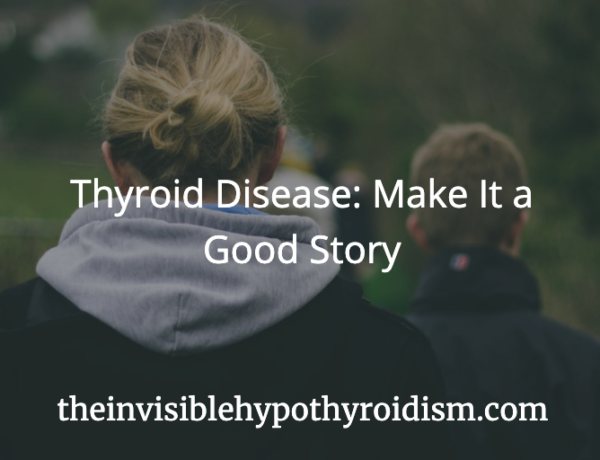“My doctor said I’m borderline hypothyroid. What does this mean? What should I do?”
Let’s explore.
What is Borderline Hypothyroidism?
Borderline or subclinical hypothyroidism is a diagnosis given when test results for TSH are sitting close to the top of the reference range. An example would be a result coming back as 11 on a range of 1-10, or even 9 on the same range. Optimal TSH values are often recognised to be 2.5 or lower, with many people experiencing symptoms of hypothyroidism when their TSH goes above this, therefore herein lies our problem.
It is also important to keep in mind that lab ranges can differ from lab to lab and country to country. The inconsistency on what constitutes for ‘borderline’ hypothyroidism can be wild.
Many people are told that their thyroid levels are ‘subclinically hypothyroid’ and not yet ‘bad enough’ for treatment, even though they are nowhere near the optimal 2.5 or below, which is why they’re having thyroid symptoms.
However, not everyone with subclinical hypothyroidism does have symptoms and this is part of our consideration when we look at whether to medicate later on in this article.
Is ‘Borderline Hypothyroid’ a Useful Term?
There are differing opinions on this. One problem with it can be that many doctors go by TSH levels alone for this diagnosis, which is a pituitary hormone, and does not provide the full picture of our thyroid health. Whilst TSH may only be ‘mildly’ borderline, actual thyroid hormone levels Free T3 and Free T4 could be much lower and this also doesn’t take in to account thyroid antibodies either.
If you’re testing positive for thyroid peroxidase and thyroglobulin antibodies, i.e. Hashimoto’s, then your thyroid hormone levels are pretty much guaranteed to continue worsening with time. Ways to reduce these antibodies may include taking thyroid medication as well as tackling other lifestyle areas, but do you have the energy to implement these without treatment for your ‘mild hypothyroidism’ if it’s causing you fatigue?
Many of us see the effects of a high TSH differently. For example, the range my doctor used was 0.5-5, and I felt very very ill at 9, which he described as ‘mildly borderline’. Others have told me that they got to a TSH of 4, 50 or even 100 before feeling unwell. Therefore, we should be treated individually and more than TSH should be checked.
My Experience With Borderline Hypothyroidism
As someone who was diagnosed with a ‘borderline underactive thyroid’, I always wince at the phrase. Although my TSH test may have ‘only been borderline’, my symptoms certainly were not.
‘Borderline’ or ‘Subclinical’ hypothyroidism are terms I’m personally not keen on. To me, your thyroid hormone levels are either optimal or not. If they’re not, then you can have thyroid symptoms.
I had been back and forth to the doctor for a long time, told my levels were only borderline and to test again in a couple more months. To no surprise, I was eventually feeling absolutely dreadful, looked absolutely dreadful and was struggling in all aspects of my life.
By the time of the repeat test, my results were only slightly worse and still ‘mildly’ hypothyroid, but I was started on the thyroid medication Levothyroxine to see if it helped, because I complained about my quality of life being affected loudly enough.
However, I lost years of my life to thyroid symptoms ruling it, due to doctors dismissing me because they went on inaccurate testing and outdated, wide ranges, above my symptoms, and many other patients lose years.
Does Borderline Hypothyroidism Need Treatment?
Not every person experiencing borderline hypothyroidism will be in ill health, however, a good amount are.
If you still feel OK overall and would like to apply the ‘wait and see’ approach of re-testing levels (a full thyroid panel: TSH, Free T3, Free T4, thyroid peroxidase and thyroglobulin antibodies) every two months to see if they worsen and correlate with symptoms appearing, this is your call.
If your subclinical hypothyroidism is however impacting other areas of your health, such as cholesterol, heart health, mental health, fertility etc. then it may be safer to treat sooner rather than later. After all, having borderline hypothyroidism can still cause negative knock on effects to other areas of our health.
When subclinical hypothyroidism and thyroid antibodies are raging on, it is also worth keeping in mind that other issues such as low ferritin, Vitamin D, Vitamin B12, poor gut health, sex hormone imbalances, adrenal dysfunction etc. can also develop and require your attention.
Also, a raised TSH could also be due to low Vitamin D or other issues, and correcting these could lower TSH levels back to normal.
If you do not feel well as subclinically hypothyroid and would like to try thyroid medication, however, your doctor is withholding treatment until your levels get worse, despite your quality of life suffering, I am sorry. Although the NICE guidelines suggest waiting until a TSH tests as 10 or above on two separate occasions, many of us do feel hugely unwell with a TSH lower than this. [1]
You may consider seeing another doctor who will pay more attention to your symptoms over TSH alone, however, some doctors are willing to trial a low dose of thyroid medication with a TSH below 10 if the patient’s quality of life is hugely affected. If this is you, you can demonstrate this by writing down symptoms, how work or personal life is affected and taking a friend or family along to appointments for support. See some more tips like this here.
If you wish to order thyroid panel testing yourself, you can find a link for those in the UK here and a US link here.
If thyroid levels are not optimised then they can cause symptoms and affect your quality of life. Therefore, ‘borderline’ levels are no excuse to not treat someone if they’re feeling unwell.
Some people will and do feel awful with ‘only borderline’ hypothyroidism.
Have you been dismissed with ‘borderline’ hypothyroidism, yet feel very unwell?
You can click on the hyperlinks in the above post to learn more and see references to information given.
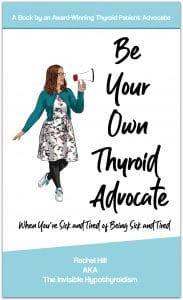
The book Be Your Own Thyroid Advocate: When You’re Sick and Tired of Being Sick and Tired by thyroid patient Rachel, which covers how she got her health back after doctors told her she was ‘only borderline’ hypothyroid.
References:
[1] https://cks.nice.org.uk/topics/hypothyroidism/management/subclinical-hypothyroidism-non-pregnant/

